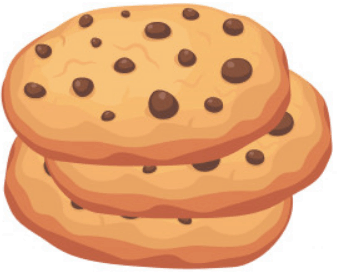Programming lies at the heart of computer systems, orchestrating the intricate dance between input, output, process, storage, and communication. In this article, we'll explore how these fundamental components interact, using examples in Python, Go, and JavaScript to illustrate their roles.
Input:
Input serves as the gateway through which data enters the system, initiating processes and interactions. This can range from user input via keyboard or mouse to data from sensors, files, or network streams.
# Python example
user_input = input("Enter your name: ")
print("Hello,", user_input)
// Go example
package main
import "fmt"
func main() {
var userInput string
fmt.Print("Enter your name: ")
fmt.Scanln(&userInput)
fmt.Println("Hello,", userInput)
}
// JavaScript example
let userInput = prompt("Enter your name:");
console.log("Hello, " + userInput);
Output:
Output represents the result or response generated by the system, conveying information to users, other systems, or devices.
# Python example
print("Hello, world!")
// Go example
package main
import "fmt"
func main() {
fmt.Println("Hello, world!")
}
// JavaScript example
console.log("Hello, world!");
Process:
Process involves manipulating and transforming data according to predefined algorithms and logic, enabling the computer to perform tasks and solve problems.
# Python example
num1 = 5
num2 = 3
result = num1 + num2
print("The sum is:", result)
// Go example
package main
import "fmt"
func main() {
num1 := 5
num2 := 3
result := num1 + num2
fmt.Println("The sum is:", result)
}
// JavaScript example
let num1 = 5;
let num2 = 3;
let result = num1 + num2;
console.log("The sum is:", result);
Storage:
Storage entails preserving data for future use, whether temporarily in memory (RAM) or permanently on storage devices (e.g., hard drives, SSDs).
# Python example
my_list = [1, 2, 3, 4, 5]
// Go example
package main
func main() {
mySlice := []int{1, 2, 3, 4, 5}
}
// JavaScript example
let myArray = [1, 2, 3, 4, 5];
Communication:
Communication enables the exchange of data and information between different components, systems, or users, facilitating collaboration and interaction.
# Python example (using sockets for network communication)
import socket
server_socket = socket.socket(socket.AF_INET, socket.SOCK_STREAM)
server_socket.bind(('localhost', 12345))
server_socket.listen(1)
client_socket, addr = server_socket.accept()
print("Connection from", addr)
data = client_socket.recv(1024)
print("Received:", data.decode())
client_socket.close()
server_socket.close()
// Go example (using HTTP for web communication)
package main
import (
"fmt"
"net/http"
)
func handler(w http.ResponseWriter, r *http.Request) {
fmt.Fprintf(w, "Hello, %s!", r.URL.Path[1:])
}
func main() {
http.HandleFunc("/", handler)
http.ListenAndServe(":8080", nil)
}
// JavaScript example (using WebSocket for real-time communication)
const WebSocket = require('ws');
const wss = new WebSocket.Server({ port: 8080 });
wss.on('connection', function connection(ws) {
ws.on('message', function incoming(message) {
console.log('received: %s', message);
});
ws.send('something');
});
Understanding these components and their interplay is fundamental to harnessing the full potential of programming in computer systems. Whether you're manipulating data, interfacing with hardware, or building complex systems, programming serves as the bridge that transforms ideas into reality.
 Psst! Do you accept cookies?
Psst! Do you accept cookies?
What's your thoughts?
Please Register or Login to your account to be able to submit your comment.